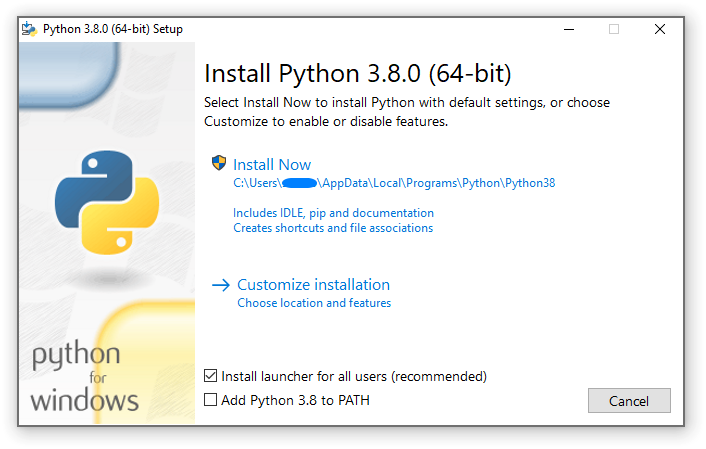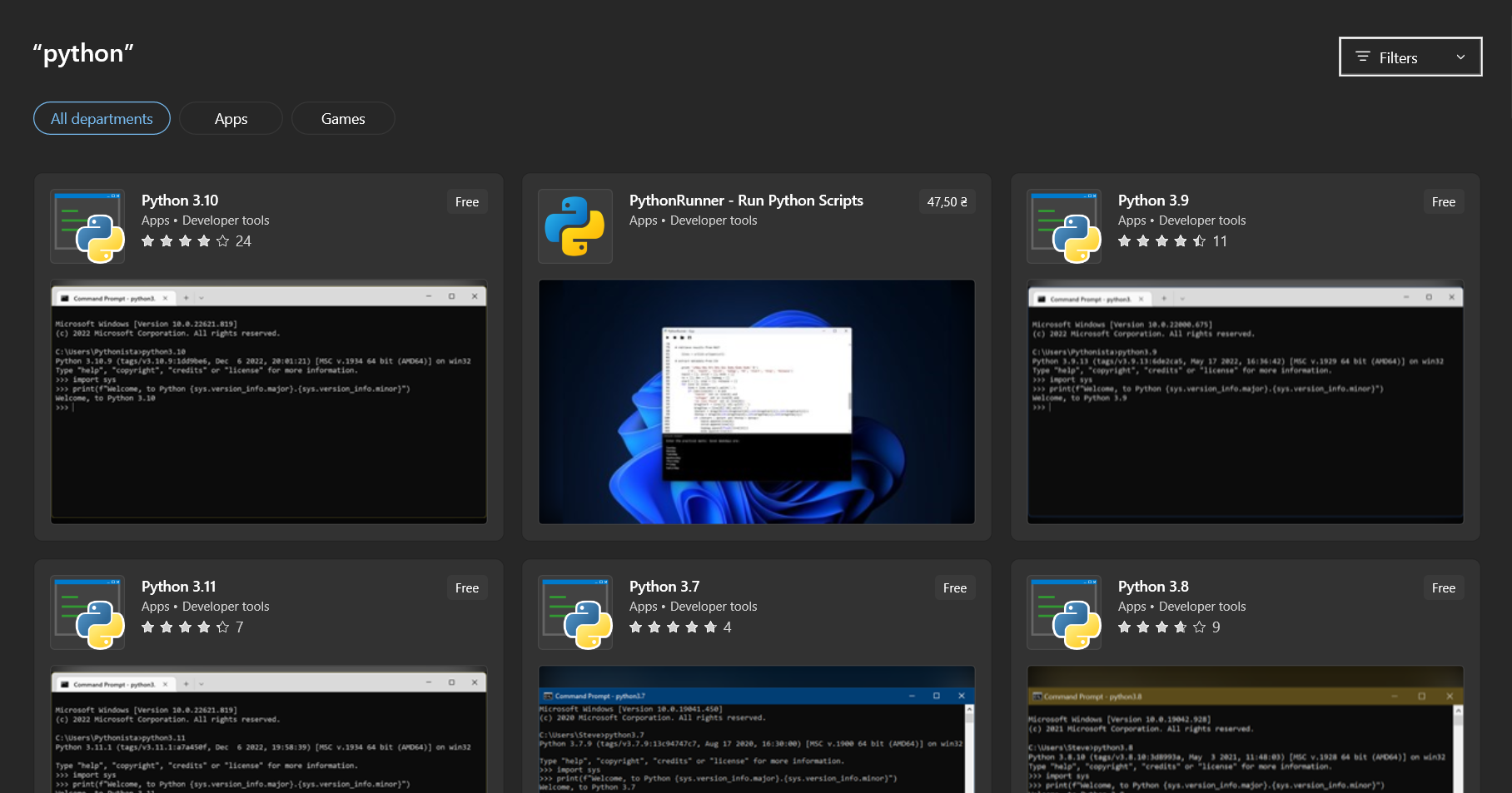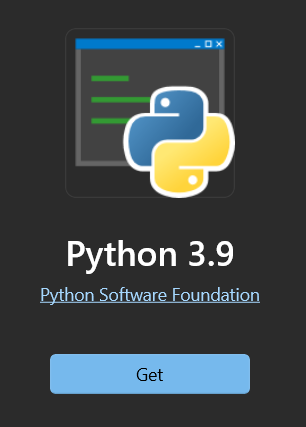Install Python
The Python wiki briefly describes the installation process.
Note
To become a true professional, you need a special software called IDE or at least a code editor supporting syntax highlight. Refer Code Editors for more information.
Linux
On most Linux distros Python comes pre-installed and/or all distro have it available in their package repository (I haven’t seen the one which does have). The installation process depends on the distro, but here are some examples how you can install it:
# Debian / Ubuntu (and other distros that uses ``apt``)
apt install python3 python3-dev
# ArchLinux
pacman -S python3
# RedHat, CentOS, Fedora
dnf install python3 python3-devel
# Gentoo
# ... you should know what to do
MacOS
For newer versions of MacOS Python is no longer included by default and you will have to download and install it.
The process is described at: Using Python on a Mac.
Briefly, you are invited to visit downloads and download the latest stable version of Python. A “universal binary” build of Python runs natively on Mac’s new Intel and legacy PPC CPUs.
After the installation you would get:
Python 3.x folder in Applications folder. Standard development environment (IDLE) and PythonLauncher included.
A framework /Library/Frameworks/Python.framework included libraries and executables.
Install from Homebrew
Python for MacOS is available via Homebrew. You are to search formulae for the latest available version. In general, it’s as easy as:
brew install python@3.9
Windows
As for MacOS, here is the official documentation: Using Python on Windows.
For Windows’ users the stable release is available from downloads. Just download the installer and proceed to common steps to install software.
Important
It’s recommended to Add Python3.x to PATH, this will avoid problems at the beginning of your journey with Python

Python installer first page
Going on with Install Now:
Python will be installed to your user directory
Python Launcher will be installed according to the option at the bottom of the page
Using Customize installation will perform an all-users installation.
Removing the MAX_PATH Limitation
Windows historically has limited path lengths to 260 characters. This meant that paths longer than this would not resolve and errors would result. In the latest versions of Windows, this limitation can be expanded to approximately 32,000 characters. This allows the open() function, the os module and most other path functionality to accept and return paths longer than 260 characters.
You will need PC administrator assistance to perform this action.
Install from the Microsoft Store
You can install from the Microsoft Store in two steps:
Open the Microsoft Store app and search for
PythonThe result should look like:
Microsoft Store - search results for “Python”
Select
Python 3.9or the higher available version.Click GET and wait until the installer is downloaded. The installation process should run automatically. Follow the installer’s instructions.

Online Interpreters
Installing or updating Python on your computer is the first step to becoming a Python programmer [RealPython].
But if you cannot install Python at the moment for some reason, are can go with online interpreters. repl.it provides the ability to create and store Python scripts (they are called repl here) for free.